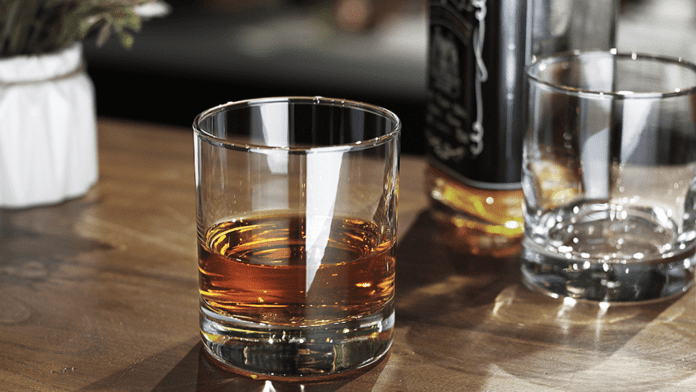The disagreement surrounding the “angel’s share” has created a rift between Indian whisky manufacturers and Scottish brands during the negotiations of the potential free trade agreement (FTA) between India and the UK.
The term “angel’s share” denotes the portion of alcohol that evaporates during the maturation and ageing process of whisky, as it is stored in wooden casks. As per a popular legend in the spirits industry, the “angels” consume their portion of alcohol while it matures in casks located in gloomy cellars.
The UK has a significant business presence in India’s Scotch whisky market and hopes to boost it further through the FTA by lowering the import duty of 150%. However, Indian whisky makers are disputing the UK’s request to classify whisky with a maturity age of three years, the same as the prevailing standard in Britain. Their argument is that the hotter weather conditions in India would result in a loss of over one-third of the whisky, making it unfeasible to comply with the three-year maturity age requirement.
Vinod Giri, Director-General of Confederation of Indian Alcoholic Beverage Companies (CIABC), said, “In Scotland, it is colder than in India and the loss of spirit per year from a barrel is only estimated at 1-1.5%. In India, the weather is hotter and our whisky matures in just nine months compared to their three years. If we keep the whisky in the casks for a longer time, the per year loss due to evaporation and heat is 10-12%, which means in three years we lose roughly around 35% of the spirit stored in a barrel. This is a big loss and will also harm the quality of our whisky. The conditions being dictated by the UK are unacceptable and unaffordable. We are importing to the US, South America, and Africa without any such unfair conditions.”
The Confederation of Indian Alcoholic Beverage Companies (CIABC) is composed of various members, including Mohan Meakin, the proprietor of brands like Old Monk rum and Solan No 1 whisky; Radico Khaitan, the manufacturer of 8PM whisky and Rampur Single Malt; Tilaknagar Industries, which produces Mansion House Gold Whisky; Devans Modern Breweries, the maker of GianChand Whisky; Amrut Distilleries, known for Amrut Single Malt; and Jagatjit Industries, which produces Aristocrat Whisky.
As the Indian government negotiates the FTA and its provisions with the UK government, the CIABC has repeatedly urged the Indian government on this issue. “These laws around the maturity of the whisky were made by the British as per their climatic conditions. To allay their fears around quality of our products, we are even open to the idea of UK labs testing our whisky if they are concerned about its maturity. Also, we are ready to mention that our whisky is matured for less than three years.”
According to Giri, the government has given them reassurances that the Indian whisky makers’ perspectives have been presented during the negotiations.
“However, we understand that the British side is refusing to accept our plea. They are not willing to give market access.”
Regarding the FTA, Indian liquor producers are also advocating for a minimum import price of $5 (at cost, insurance, and freight level) to prevent the practice of under-invoicing when international companies are exporting their products to their subsidiaries in India through transfer pricing.
The Indian liquor producers are opposed to the proposition made by their UK counterparts, who want to decrease the import duty from 150% to 75% at the FTA’s signing, followed by a further reduction to 30% over a three-year period.
“We are open to a reduction but not at the scale which they are suggesting. We want it to be reduced progressively to 50%, but over 10 years.”



